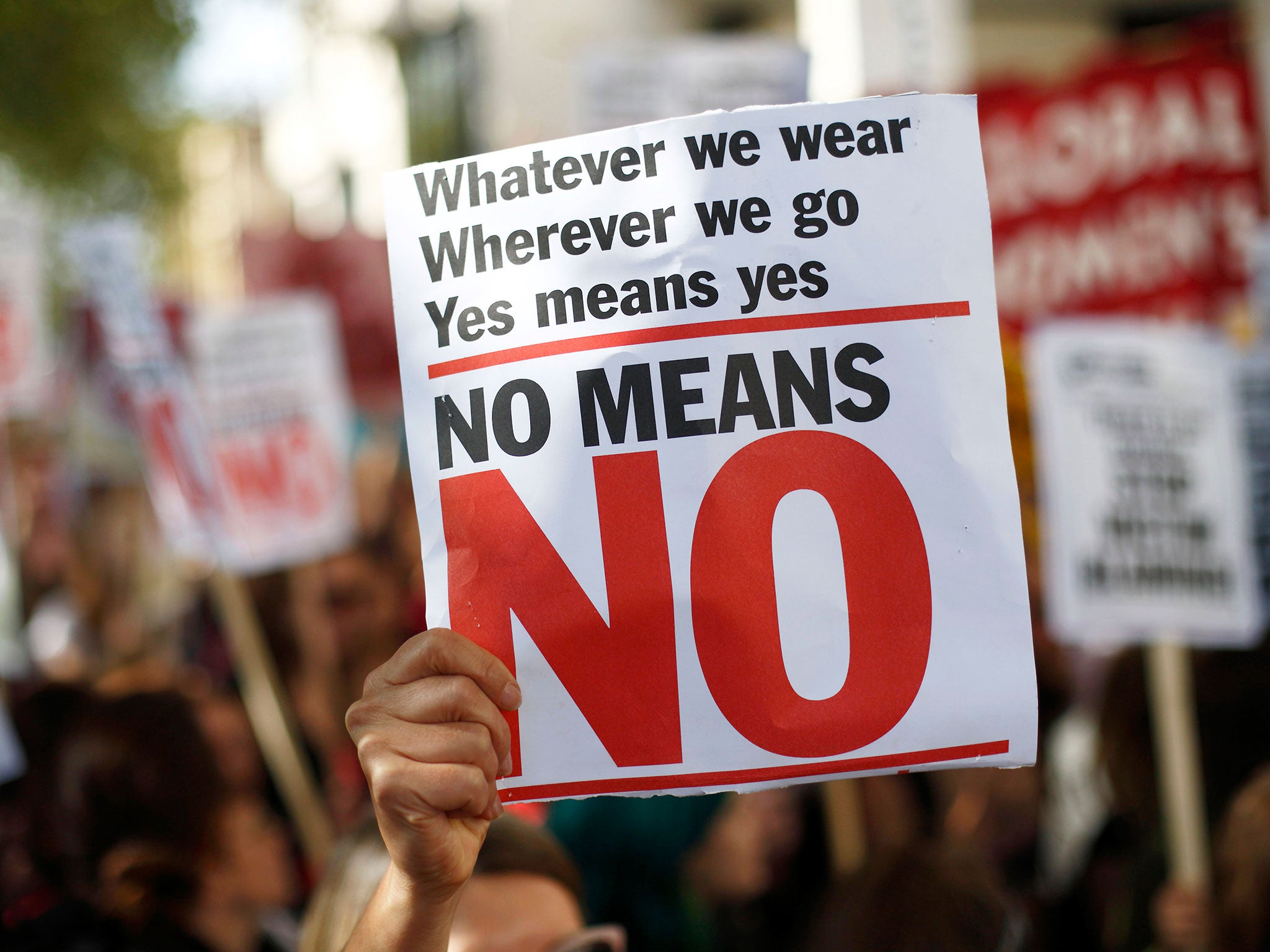Is this rape? The question that shows how desperate British kids are for a decent sex education
Last night’s BBC3 documentary was full of flaws, but it did start a conversation about consent

Your support helps us to tell the story
From reproductive rights to climate change to Big Tech, The Independent is on the ground when the story is developing. Whether it's investigating the financials of Elon Musk's pro-Trump PAC or producing our latest documentary, 'The A Word', which shines a light on the American women fighting for reproductive rights, we know how important it is to parse out the facts from the messaging.
At such a critical moment in US history, we need reporters on the ground. Your donation allows us to keep sending journalists to speak to both sides of the story.
The Independent is trusted by Americans across the entire political spectrum. And unlike many other quality news outlets, we choose not to lock Americans out of our reporting and analysis with paywalls. We believe quality journalism should be available to everyone, paid for by those who can afford it.
Your support makes all the difference.Is this rape? It’s a question we should never even have to ask, but last night BBC 3 presented an unusual exploration of exactly that issue.
The format of the hour-long show - which involved asking a group of 24 teenagers as well as members of the general public to watch a dramatised sexual scenario and vote on whether they would call it rape or not – was deeply problematic. Privileging an outsider’s perspective on a potential assault only takes away agency from the victims, perpetuating the view that people who are raped or assaulted are “asking for it”.
The charity Rape Crisis cast its own doubts over the programme last week, when it claimed that, if the issue was not sensitively handled, it could make victims of rape less likely to seek support – and it seems it was right to have concerns. Anna, a 22 year-old rape survivor I spoke to said Sex on Trial focused on “ignorant, victim-blaming arguments”. Another survivor said: “It felt too much like the X-factor or something, like a game show”, as if designed for entertainment rather than education. The full title of the show, Is this rape? Sex on Trial, also conflated rape with sex, as if the two are interchangeable. Rape is never simply an act of sex; it is an act of violence, whatever the context.
The fact that someone at the BBC felt that this show even needed to exist in the first place is incredibly sad, but the longer it continued, the clearer it became that Mr or Ms BBC was right: the conversations it provoked are the very conversations we need to have. Teenagers and adults alike are woefully ill-informed when it comes to consent. The so-called “grey areas” surrounding rape and sex seemed, last night at least, to be almost impenetrable.
The teens in the studio came out with observations such as: “Although he obviously raped her, he’s not a rapist”; “What he did was wrong but calling it rape seems quite harsh”; and, “I wouldn’t like him as a person, but I wouldn’t call the police.” Terrifyingly, one girl described it as “one of these moments where you can’t really be arsed but you do it anyway."
In the end, 87 per cent of the studio group voted that the girl in the drama did not consent to sex, that her assaulter knew she had not, and that he should be prosecuted for rape. And yet the programme’s ending was poorly handled, repeatedly dwelling on how accusations of rape “ruin a man’s life,” without paying much consideration to the devastation that rape and sexual assault has on the victims.
The show’s strongest moments were those rare occasions during which rape victims in the studio were allowed to voice their opinions. One girl used her own experience to dispel the victim-blaming arguments made by her peers; Beth, a young woman who shared the story of her violent sexual assault at university, made the tragic point that as a result of how she was dressed and what she had been drinking on the night of her assault, the case “probably wouldn’t even have gone to trial."
In fact, the court case scene was also heartbreakingly realistic, articulately presenting many of the arguments used to shut down traumatised rape victims and demonstrating exactly why so many women fear reporting rape or sexual assult. Perhaps the saddest quote of all came from a 17-year-old girl in the studio who said: “There are 12 girls here and all of us have either had this [been forced into a sexual act against their will] happen to us or known someone it’s happened to.”
If that comment alone doesn’t make a strong case for a complete overhaul of sex and relationship education in schools and universities, then I honestly don’t know what could.
If nothing else, BBC3 has proved just how desperate Britain’s young people are for a decent education in consent - even if that just involves showing this programme in PSHE lessons. I know I’d have learned a worrying amount from the show just a few short years ago.
Join our commenting forum
Join thought-provoking conversations, follow other Independent readers and see their replies
Comments